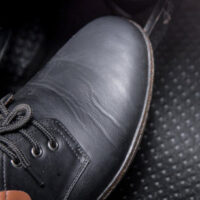Filing a Claim Based on Defective Brakes in Florida

When it comes to defective consumer products, injured parties can usually pursue legal claims against multiple parties, including the manufacturer, retail stores, and the company responsible for assembling the product. This is also true for those who suffer injuries as a result of defective vehicle brakes.
While the ability to hold multiple parties liable for their negligence maximizes the amount of damages that a person can collect, it also tends to make litigating cases more difficult, so if you were injured in an accident after your brakes or the brakes of another driver failed, it is important to contact an experienced automobile defect attorney who is familiar with both state and federal law and can ensure that your legal rights are protected.
Liable Parties
Under Florida law, it is possible for car accident victims to hold more than one person or entity responsible for a single accident. This is because consumer product defects can almost always be attributed to more than one party. For instance, while the manufacturer of the brakes could be responsible for failing to adequately test the product before placing it on the market, a mechanic who later serviced the vehicle and should have noticed that the brakes were defective could also be held liable for a portion of the victim’s damages. Similarly, retailers who fail to perform proper maintenance or inspections, or a company responsible for manufacturing a part necessary when assembling the brake system could also be held liable for damages if their negligence resulted in an accident.
Filing a Claim
When filing a claim against a manufacturer after sustaining an injury in an accident caused by a defective product, plaintiffs can base their cases on one of three legal theories:
- Strict liability;
- Breach of warranty; or
- Negligence.
Although injured parties who file strict liability or breach of warranty claims are not required to prove that a defendant was liable in order to recover damages, they will still need to demonstrate that the brakes in question were defective. In addition to providing evidence establishing the existence of a defect, plaintiffs who file claims based on negligence will also need to demonstrate that the defendant’s failure to use ordinary care led to the defect and the subsequent accident. Finally, plaintiffs may need to prove that there was no latent defect in the brakes of which the seller or manufacturer was not aware and so could not repair before it caused an injury. Once these elements have been established, plaintiffs could stand to collect compensation for out-of-pocket costs, deductible payments, vehicle repair or replacement, medical bills, and pain and suffering.
Important Deadlines
Car accident victims who can trace their injuries to the negligence of a manufacturer or other party are only eligible to collect compensation for their losses if they file a claim before the expiration of the statute of limitations. In Florida, this deadline is four years for plaintiffs who suffer injury to their person or property and two years for the families of those whose loved ones lost their lives in an accident caused by defective brakes.
Contact Our Legal Team Today
Please contact Boone & Davis at 954-566-9919 today to speak with an experienced Fort Lauderdale automobile defect attorney about collecting compensation for your own accident.
Resource:
wftv.com/news/action-9-driver-claims-oil-change-shop-caused-brak/27269289
